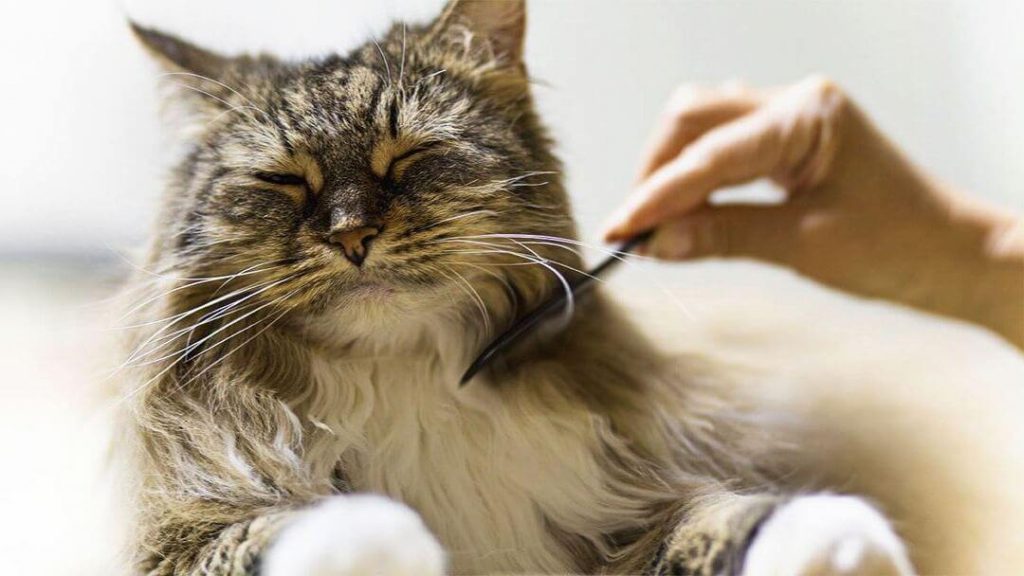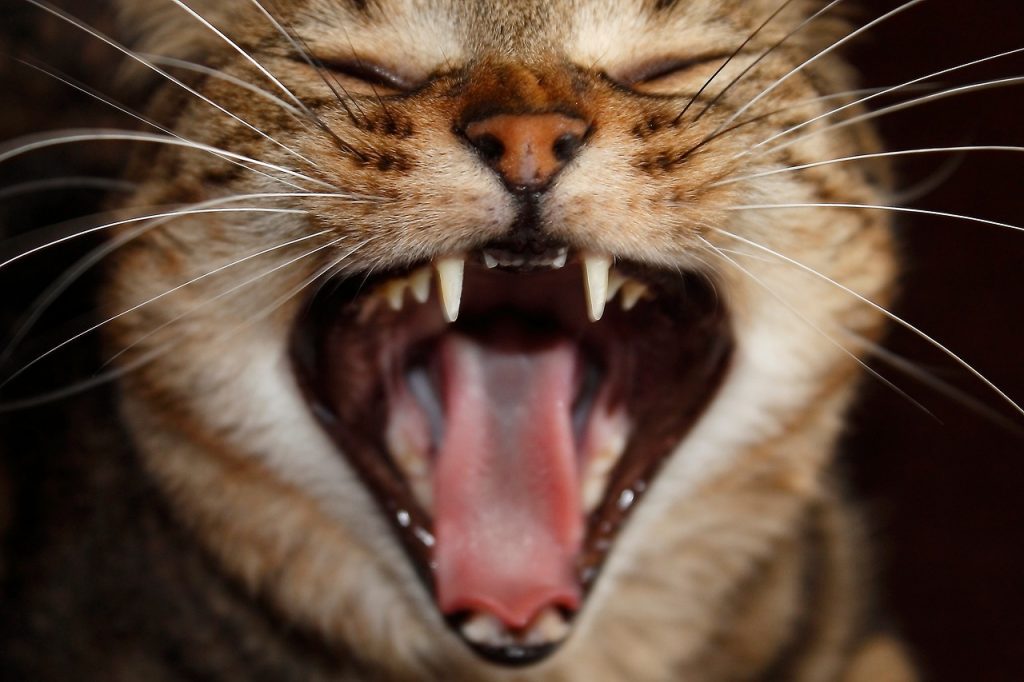As a cat owner, one of the most important responsibilities you have is to ensure your pet’s health and wellbeing. While cats are generally healthy creatures, they are susceptible to certain health problems that can impact their quality of life and longevity. In this article, we will discuss seven of the most common health problems in cats, their causes, symptoms, and how to prevent and treat them. By understanding and addressing these health concerns, you can help your cat live a healthy and happy life.
Introduction: Understanding the Health Problems in Cats
Just like humans, cats are prone to various health problems. As a cat owner, it is essential to be aware of common health issues that your furry friend might face. Some problems can be prevented or managed with proper care and attention. This article discusses seven common health problems in cats and how to prevent them.
Obesity: The Major Health Concern for Cats
Obesity is one of the most common health problems in cats. According to the Association for Pet Obesity Prevention, about 60% of cats in the US are overweight. Obesity can lead to several health problems in cats, including diabetes, arthritis, and heart disease.
Causes of Obesity in Cats
The causes of obesity in cats can be due to several factors, including overfeeding, lack of exercise, and genetics. Feeding your cat too many treats or providing high-calorie food without considering their nutritional requirements can also lead to obesity.
Health Risks Associated with Obesity
Obesity poses several health risks for cats, such as diabetes, respiratory problems, urinary tract infections, and liver disease. Overweight cats are also at higher risk of developing cancer, which can reduce their lifespan.
Preventing and Managing Obesity
Preventing obesity is always better than managing it. Ensure that you feed your cat a well-balanced diet tailored to their age, breed, and lifestyle. Reduce the number of treats you give them and make sure that they get regular exercise. If your cat is already obese, consult with your veterinarian to develop a weight-loss plan tailored to their individual needs.
Dental Problems: Keeping Your Cat’s Teeth Healthy
Dental problems are also common in cats and can lead to many health issues, such as tooth decay, gum disease, and even heart disease.
Gingivitis and Periodontitis in Cats
Gingivitis is one of the primary dental problems in cats, where the gums become inflamed and bleed easily. If left untreated, gingivitis can progress to periodontitis, where the teeth become loose, and the surrounding tissues get infected.
Preventing Dental Issues in Cats
Regular dental check-ups are crucial to prevent dental issues in cats. Also, ensure that you brush your cat’s teeth regularly and provide them with chew toys or dental treats.
Treating Dental Problems in Cats
If your cat has dental problems, your veterinarian may recommend a professional dental cleaning and, in severe cases, tooth extraction. It is essential to address dental issues early to prevent further complications.
Urinary Tract Infections: Understanding the Symptoms and Prevention
Urinary tract infections (UTIs) are also prevalent in cats and can lead to severe health problems if left untreated.
Symptoms of Feline UTIs
Some common signs of UTIs in cats include difficulty urinating, blood in urine, frequent urination, and excessive grooming around the urinary area.
Preventing Urinary Tract Infections in Cats
Staying hydrated is essential in preventing UTIs in cats. Make sure your cat always has access to clean drinking water. It would also be best to feed them a diet that promotes urinary tract health.
Treating Feline UTIs
If your cat is diagnosed with a UTI, your veterinarian will prescribe appropriate antibiotics to clear up the infection. Make sure to follow the medication schedule and take your cat for a follow-up visit to ensure that the infection has cleared up completely.
Skin and Coat Problems: Keeping the Fur Healthy and Shiny


Cats are known for their luxurious fur, but sometimes they can face skin and coat problems that leave their fur looking dull and lifeless. These issues can be caused by a variety of factors such as allergies, parasites, or dermatitis. Understanding these problems and taking preventative measures can help keep your feline friend looking and feeling their best.
Common Skin and Coat Problems in Cats
One of the most common skin problems in cats is dermatitis, which is caused by allergies to various environmental factors such as flea bites, pollen, or dust. In addition to dermatitis, cats can develop alopecia, which is a condition that causes hair loss in patches. This can be caused by a variety of factors such as stress, infection, or hormonal imbalances.
Preventing Skin and Coat Problems in Cats
Prevention is key when it comes to keeping your cat’s skin and coat healthy. Maintaining a regular grooming routine can help prevent matting and hairballs, which can lead to skin irritation. Additionally, keeping your cat’s environment clean and free of parasites can help prevent flea and tick infestations that can cause dermatitis.
Treating Skin and Coat Problems in Cats
If you notice any skin or coat problems with your cat, it’s important to take action early. Depending on the severity of the issue, your veterinarian may recommend a variety of treatments such as medication, medicated shampoos, or dietary changes. Regular grooming can also help alleviate some skin problems.
Parasites: Prevention and Treatment for Fleas and Ticks
Fleas and ticks are not only a nuisance, but they can also cause serious health problems for your cat. Preventing and treating these parasites is essential to keeping your cat healthy and happy.
Understanding Fleas and Ticks in Cats
Fleas and ticks are external parasites that feed on the blood of animals. They can transmit diseases and cause allergic reactions in cats. Fleas are tiny and can be difficult to spot, but signs of their presence include excessive scratching, biting, and licking. Ticks are larger and can be seen on the surface of the skin.
Preventing Fleas and Ticks in Cats
One of the most important steps in preventing fleas and ticks is to keep your cat’s environment clean. Regularly cleaning your cat’s bedding, toys, and litter box can help prevent infestations. Additionally, using flea and tick prevention products, such as collars or topical treatments, can help keep your cat protected.
Treating Fleas and Ticks in Cats
If you suspect your cat has fleas or ticks, it’s important to take action immediately to prevent further infestation. Your veterinarian may recommend a variety of treatments such as medicated shampoos, topical treatments, or oral medication. It’s important to treat all pets in the household to prevent the spread of fleas and ticks.
Aging and Disease: Understanding the Common Health Issues in Senior Cats
As cats age, they are more prone to developing health issues such as arthritis, kidney disease, and dental problems. Understanding these common issues and taking steps to care for your senior cat can help keep them healthy in their golden years.
Health Issues that Affect Senior Cats
Arthritis is a common health issue in senior cats and can cause stiffness and pain in their joints. Kidney disease is also common in senior cats and can lead to dehydration, weight loss, and lethargy. Dental problems such as periodontal disease can also affect senior cats and can lead to pain and difficulty eating.
Caring for Senior Cats
Regular veterinary check-ups are essential for senior cats to detect and treat any health issues early. Providing a healthy diet and regular exercise can also help prevent health problems. Additionally, providing your senior cat with a comfortable and safe environment can help them live out their golden years with ease.By taking preventive measures and addressing health concerns promptly, you can help ensure that your cat stays healthy and happy for many years to come. If you have any concerns about your cat’s health, always consult with your veterinarian for guidance and treatment options. With proper care and attention, you can help your feline companion live their best life.
FAQ
What are the most common health problems in cats?
Some of the most common health problems in cats include obesity, dental problems, urinary tract infections, skin and coat problems, parasites, and health issues associated with aging.
How can I prevent health problems in my cat?
Preventive measures such as regular visits to the veterinarian, a healthy diet, plenty of exercise, and good hygiene practices can help prevent many health problems in cats.
What should I do if I suspect my cat has a health problem?
If you suspect your cat has a health problem, it is important to take them to a veterinarian as soon as possible for an evaluation and treatment. The earlier a health problem is detected, the more effective treatment can be.
Can I treat my cat’s health problems at home?
While some minor health problems such as hairballs or minor scratches can be treated at home, it is important to consult with a veterinarian before attempting to treat any health problems yourself. Some health problems can be serious and require medical attention.



